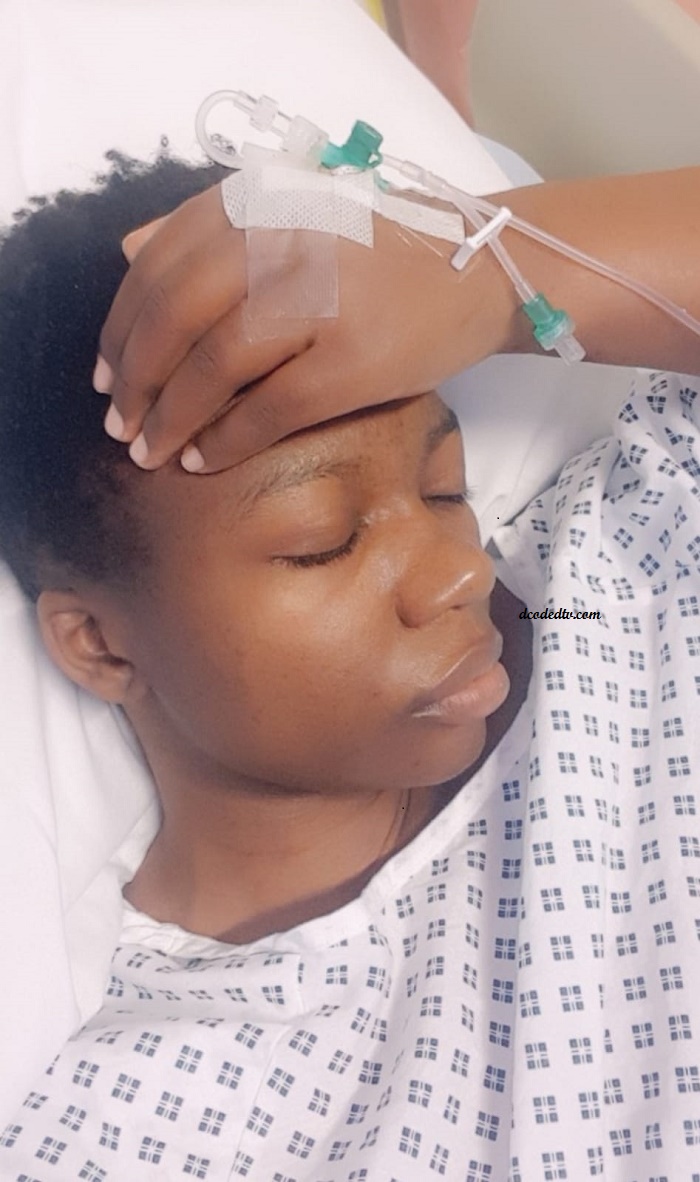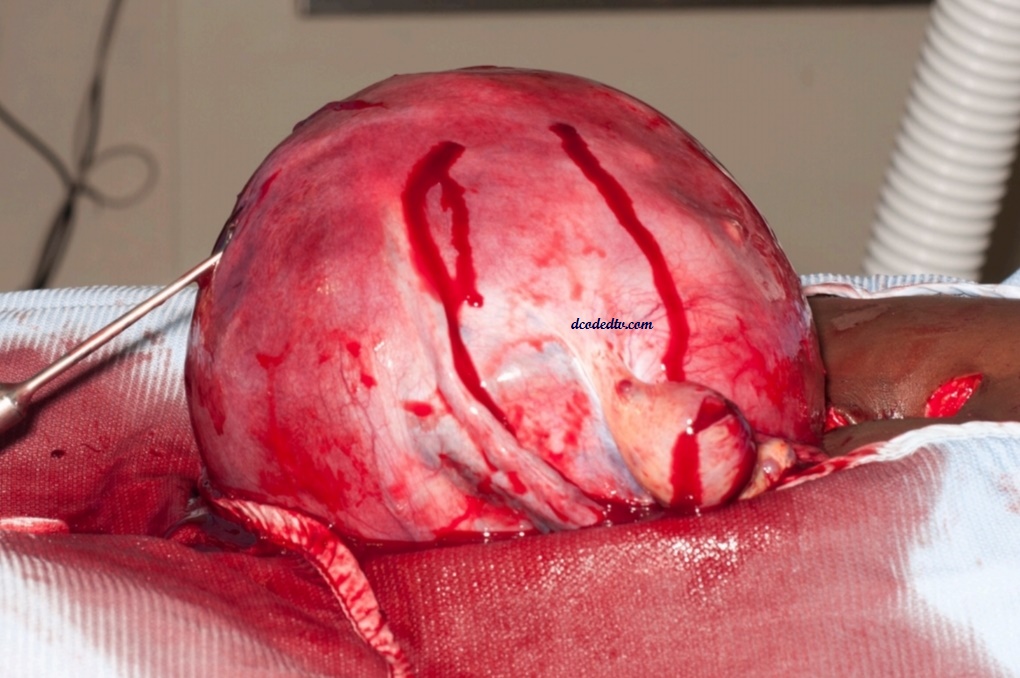Cameroon blogger/ LGBTQ Activist, Bandy Kiki survives uterine fibroid surgery
Her health crisis sparked so many debates online but now, Bandy Kiki, Cameroon blogger and LGBTQ activist is coming clean about her current health situation and she’s also addressing all those pregnancy rumours.
If you are a Cameroonian and a frequent social media user, you must have come across Bandy Kiki‘s fibroid story and the controversy linked to it.
Several media platforms reported that the popular Cameroon blogger and LGBTQ activist was pregnant, and lying to readers and fans that she had a large uterine fibroid.
Dcoded TV can now exclusively confirm that it was indeed a fibroid as initially stated by Miss Kiki.

On March 13, 2019, Kiki underwent a major surgery at the Royal Bolton Hospital, Greater Manchester, UK, where a ‘giant’ uterine fibroid was removed. According to our source, she lost almost 2 litres of blood during the surgery and ended up at the Intensive Care Unit for 24 hours.
Kiki has since been discharged from the Royal Bolton Hospital and is recovering slowing at home.
“Going through a surgery should remind everyone about how precious and fragile our lives are. I want to take this moment to thank all those who included me in their prayers. I am renewed again. It really feels good to be relieved of the discomfort. Nevertheless, we are meant to withstand the odds. And, I have learned so much. I will henceforth, love to spend some of my time to educate others, especially women, about fibroids, to broaden the understanding about it and better prepare others on dealing with it and its stereotypes/ stigma,” Kiki tells Dcodedtv
What are Fibroids?
According to Reproductivefacts.org Uterine Fibroids (also called myomas or leiomyomas) are benign (noncancerous) tumors of muscle tissue found in the uterus. They can enlarge and/or distort the uterus (womb) and sometimes the cervix (lower part of the uterus). They grow from the smooth muscle cells in the wall of the uterus.
Fibroids can be singular or multiple and are very common. It is estimated that uterine fibroids will affect 8 in 10 African American women and 7 in 10 Caucasian women by the time they reach menopause.
Fibroids usually become noticeable during the reproductive years and become smaller after menopause. Most cause no symptoms and do not require treatment. However, depending on the size and location of the fibroids in the uterus, they may cause symptoms and require treatment.
Causes of Fibroids?
The exact cause of fibroids is unclear, but evidence suggests that both genetics and hormones play roles. For instance, fibroids are slightly more common in black women compared with Caucasian women. Estrogen and progesterone (hormones produced primarily by the ovaries) may stimulate growth of fibroids. After menopause, when hormone levels are low, fibroids rarely grow and frequently shrink. There is little evidence that nutritional or lifestyle factors affect fibroid growth and development. Similarly, medications such as low-dose birth control pills have little or no impact on fibroid growth.
Symptoms of Fibroids
Around 1 in 3 women with fibroids will experience symptoms.These may include:
– Heavy, painful periods, also known as menorrhagia
– Anemia from heavy periods
– Lower backache or leg pain
– Constipation
– Discomfort in the lower abdomen, especially in the case of large fibroids
– Frequent urination
– Pain during intercourse, known as dyspareunia
Possible Effects
– Labor problems
– Pregnancy problems
– Fertility problems
– Repeated miscarriages
We wish Kiki Bandy a speedy recovery. God bless you

